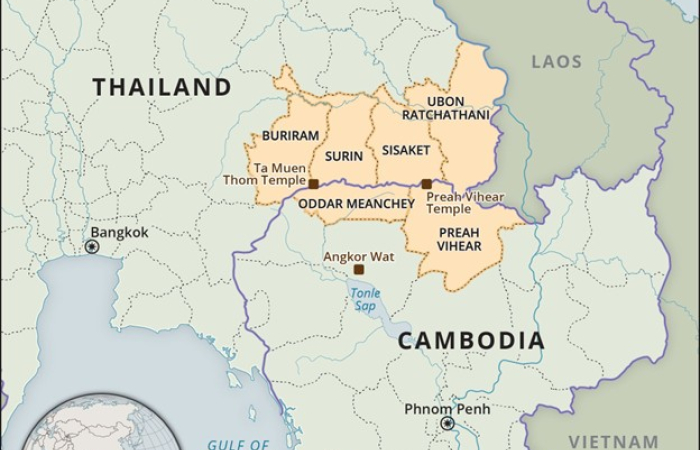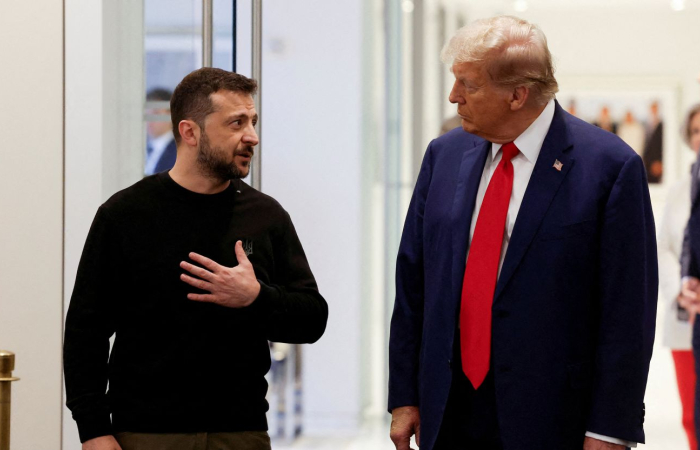More than fifty academics, diplomats, regional experts and activists from the South Caucasus, wider Europe and beyond, gathered in Oxford on 27 and 28 February for a conference entitled "The South Caucasus at a time of shifting international paradigms". The conference, held at St Antony's College Oxford was organised by Oxford University and the British organisation LINKS.
Participants were welcomed by Dame Audrey Glover, who chaired the first session. Atanas Baltov, Political Advisor to the EU Special representative for the South Caucasus made opening remarks during which he highlighted the EU's continued interest in and support for the South Caucasus region and countries. He welcomed the initiative to organise the Oxford event as a practical contribution to the search for peace in the region.
In the first part of the conference, participants focused on the international situation and its impact on the region. The session was chaired by Professor Roy Allison of Oxford University and presentations were made by Neil Melvin from SIPRI, Stockholm, Professor Pavel Baev from PRIO, Oslo, Professor Mustafa Aydin from Kader Has University, Istanbul, Eldar Mammedov from the European Parliament Sand D Group Foreign Affairs Team, and Craig Oliphant from the FPC in London.,
Speakers raised concerns about the immediate future security situation as the west continues to be distracted by Brexit and an unpredictable political situation in the United States. Speakers warned against the consequences of a possible vacuum in the region in the face of increased Russian assertivness. The role of Turkey, Iran, the EU, the US and the UK were discussed in detail.
The second part of the conference focused on Karabakh conflict and the domestic political situation in Armenia and Azerbaijan. A panel discussion chaired by Professor Neil Macfarlane of Oxford University included presentations from Dr Laurence Broers from Chatham House, Hikmat Hadjiev the Spokesperson at the Azerbaijani Foreign Ministry and Armen Liloyan, Minister Plenipotentiary at the Embassy of Armenia in London.
Hikmat Hadjiev said that the international community does not appreciate the threat perception of Azerbaijan. The situation on the line of contact is very difficult with one hundred thousand soliders facing each other. He said Armenia has switched to a deterence with a possible option of preemptive strike. In the current situation both war and peace are possible. The peace option was still there. Azerbaijan has said clearly there will never be a second Armenian state on Azerbaijani territory but Azerbaijan has offered the option of a Nagorno-Karabakh autonomous republic. Hajiev said the present generation has a duty to resolve the conflict and not leave it for future generations.
On his part Armen Liloyan said that for Armenians Nagorno-Karabakh is an existential issue. Self-determination is a basic right enshrined in the UN charter. The April 2016 fighting had resulted in many atrocities against Armenians. He said that Azerbaijani leaders have become prisoners of their own rhetoric on the use of force. Liloyan said presently the problem with the peace is trust and political will. Armen Liloyan said that Armenia supports the work of the Minsk group in the present format. They cannot resolve the conflict but they can facilitate and contribute towards the settlement.
An interesting discussion followed and many of those present welcomed the constructive tone of the discussion, and the constructive ideas presented.
This was followed by another panel, with the participation of Dr Mikayel Zolyan from RSC, Armenia, Ahmad Alili from CESD in Baku and Dr Dennis Sammut from LINKS in London that focussed on the domestic politics in Armenia and Azerbaijan and its impact on the Karabakh conflict resolution process, as well as the role of the conflict affected populations. The panel focused on current political trends, and the impact of the conflict on the political discourse. The need to engage more with political elites in order to increase the chances of a successful peace process was highlighted.
In a final wrap up session, chaired by Dr Paul Chaisty of Oxford University. Dr George Mchedlishvili from Tbilisi Black Sea University, Dr Eduard Abrahamian from Yerevan and Professor Mustafa Aydin reflected on the day proceedings, highlighting some of the key ideas discussed throughout the day. This was followed by a lively discussion.
The event opened on 27 February with a lecture on Georgian politics by Dr Jonathan Wheatley of Oxford Brooks University.
A full report of the conference will be available on commonspace.eu shortly
source: commonspace.eu






